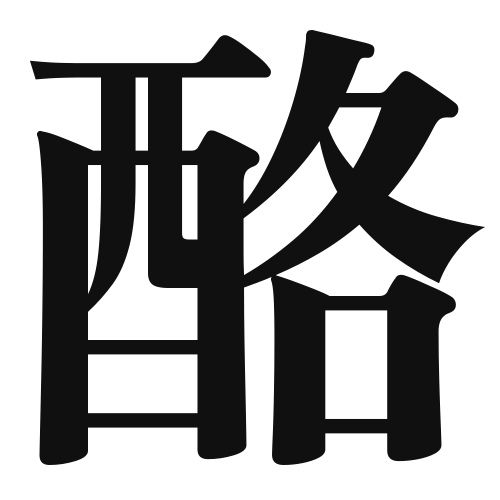1. Overview of Meaning
The kanji “酪” (raku) primarily means “dairy” or “milk products.” It is often associated with items like cheese and butter, reflecting its connection to the dairy industry.
2. Formation and Radical
Formation of the Kanji: The kanji “酪” is a phono-semantic compound (形声文字), which means it combines both a phonetic and a semantic component. The left part, “酉,” relates to alcohol or fermentation, while the right part, “各,” contributes to the pronunciation.
Radical: The radical of “酪” is “酉,” which is associated with fermented products and beverages.
3. Examples of Usage
Common Words and Phrases: Some frequently used words that include “酪” are “酪農” (rakunou – dairy farming) and “酪製品” (rakuseihin – dairy products).
Example Sentence in Daily Conversation: “私は毎朝、酪製品を使った朝食を食べます。” (Watashi wa maiasa, rakuseihin o tsukatta choushoku o tabemasu.) – “I eat breakfast using dairy products every morning.”
4. Synonyms and Antonyms
Similar Kanji: A similar kanji is “乳” (nyuu), which means “milk.” While “酪” refers to processed dairy products, “乳” specifically denotes milk itself.
Opposite Meaning Kanji: An antonym could be “肉” (niku), which means “meat,” representing a different category of food altogether.
5. Cultural and Historical Background
Relation to Japanese Culture: In Japan, dairy products have become increasingly popular, especially in modern cuisine. The introduction of Western dairy practices has influenced Japanese cooking and eating habits.
Proverbs and Idioms: While there are no specific proverbs that directly reference “酪,” the importance of dairy in nutrition and cooking is often acknowledged in discussions about healthy eating.
